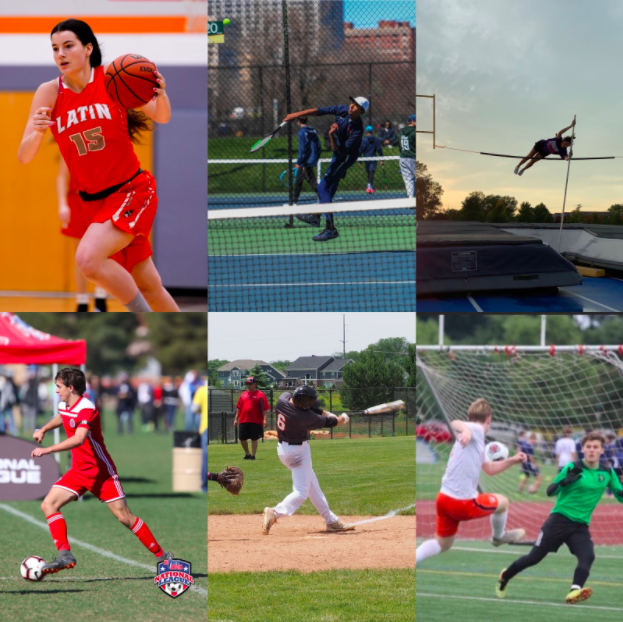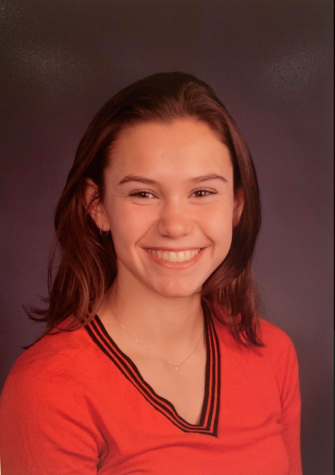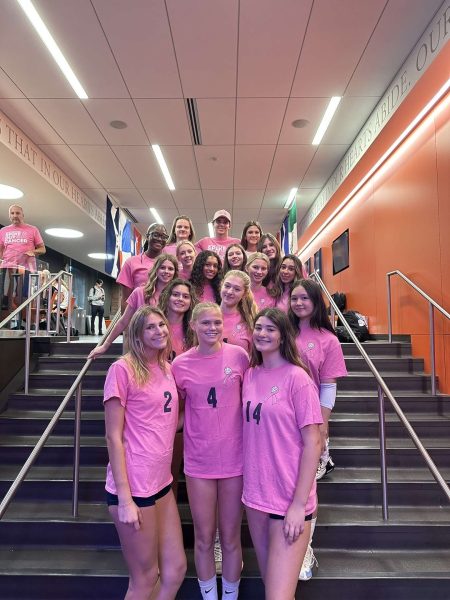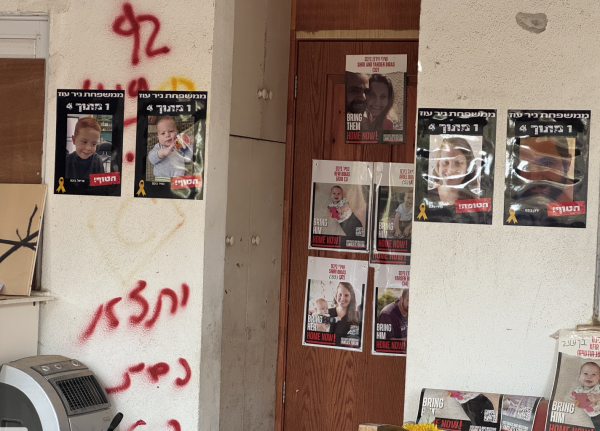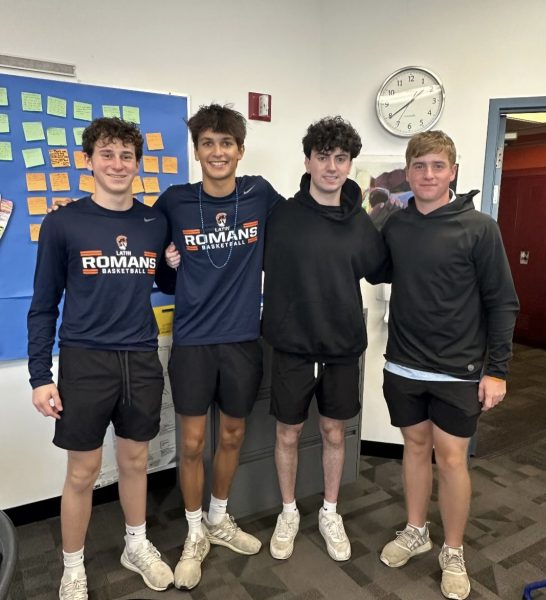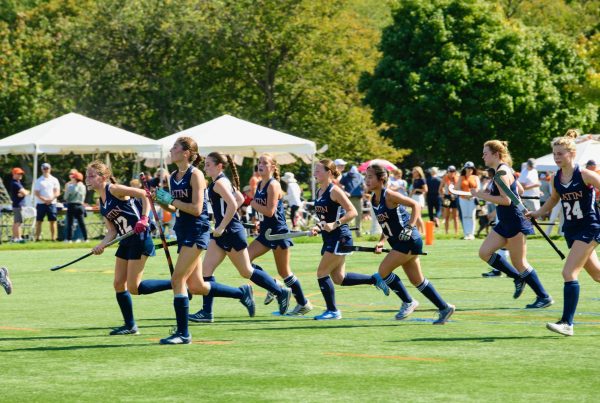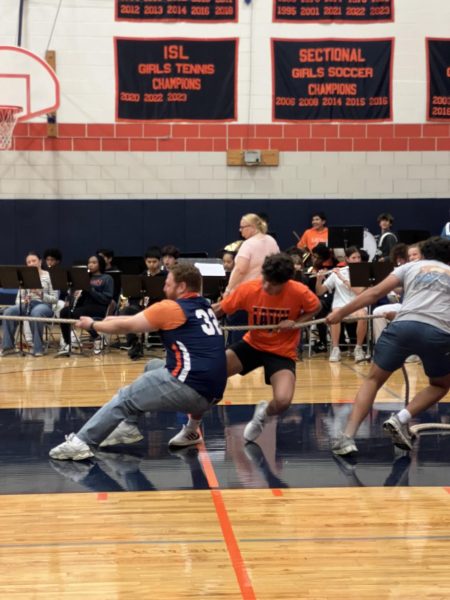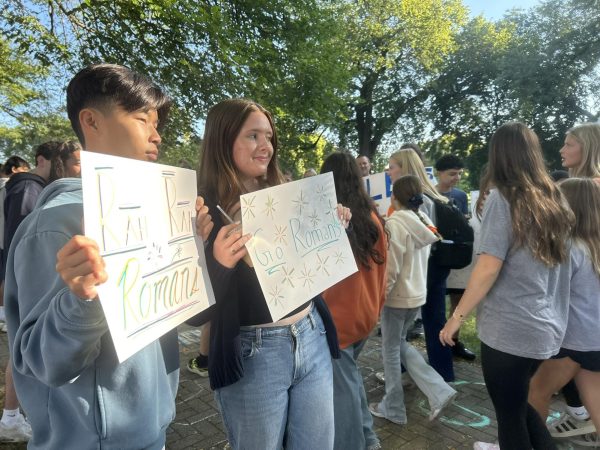Athletes Struggle to Navigate Recruitment In Wake of Pandemic
April 3, 2020
For many athletes at Latin, the switch to e-learning due to the COVID-19 pandemic has not only resulted in missing school but in missing a large part of their spring sports seasons. While seniors watch their last high school season repeatedly get pushed back, some dedicated younger athletes are worried about something else entirely: college recruiting.
There is a relatively large number of athletes at Latin looking to pursue their sports at the college level. Some, like juniors Ava Tortorello and Molly Canfield, have already committed to Division I programs. But for the rest of the junior class, COVID-19 and the related precautions are cause for major concern. After nearly all college campuses closed and moved to online learning, the NCAA made the difficult decision to cancel all 2020 spring sports seasons, causing an abrupt end to thousands of athletes’ collegiate careers. As an additional precaution, the NCAA instituted an unplanned “quiet period,” during which coaches are not allowed to have in-person interactions with potential high school recruits, prohibiting even one-on-one, off-campus coach meetings with athletes.
So how does all of this affect the trajectory of high school athletes aspiring to compete at the college level? Many are worried they will not be able to show the progress they have made in the offseason. “My biggest concern with not having a season and not even being able to practice with my coach is just losing progress. I know at least for the pole vaulters we have been working really hard during the offseason to be able to do well in the spring,” says Francesca Sacchetti, who currently holds the pole vault school record. In sports like pole vault, where performance is measured by time or distance, coaches rely a lot on numbers in the preliminary phases of recruiting; the spring of one’s junior year is so important because most athletes post their best times or heights then.
The IHSA has not officially canceled spring sports seasons and still seems rather optimistic about restarting seasons and potentially postponing spring state tournaments.
It’s not just IHSA sports seasons that are under threat. Natalie Mann, who just passed the 1000 point mark on the Latin’s Basketball team this past winter season and plays AAU travel basketball, comments, “It’s really unfortunate that we might not be able to play live in front of coaches because a lot of us have been working really hard to be able to play at the next level.”
Even events that have been rescheduled to later in the summer pose challenges for athletes. Eli Aronson, who is a captain of the Latin baseball team and plays travel baseball over the summer, says, “There’s a good chance that all the June tournaments are postponed to August or September, where the season is typically over and players get opportunities to visit schools.”
Unofficial visits are where a student makes their own way to a campus, whereas an official visit means the school is funding that athletes visit and are limited to 48 hours. These visits, official or unofficial, are being canceled for athletes across the board, as many planned to spend their junior spring break meeting coaches and visiting schools. Colin Campbell, captain of the Latin soccer team and year-round travel player, says, “I was going to go visit a school, and luckily they were still in school, and the coach offered for me to go to one of their classes, which was great news for me because I’d follow a soccer player and get to see the classes they take and meet the coach, and that was something I was really looking forward to.”
However, opportunities like these are being lost across all sports. “I was invited to take an official visit at a school that I am really interested in this spring, but obviously that won’t be happening now. Hopefully, I will be able to do so this summer or fall,” says Natalie Mann.
“I think I’m very lucky that this happened during my sophomore spring instead of my junior spring,” says Sam Gibson, another year-round soccer player. “I’m sure it’s the same for many sports, but your junior spring is by far the most important time period for soccer recruiting.” Above all, the result of these cancellations and postponements is giving athletes a tiny window to show themselves during the most important time for recruiting.
“Every student-athlete should train for this summer, knowing that it’s almost all or nothing,” continued Colin Campbell. “Your tournaments and seasons are being canceled, which means you can’t perform as well, you can’t score as many goals, PR, hit a home run, whatever it is, you can’t do that, so you can’t really show places and colleges who you are as an athlete.”
So how are athletes coping with this lack of face-to-face contact? “Because coaches are not able to attend meets to recruit people, they are relying on students reaching out to them and stat websites like Athletic.net, which can only give you so much information,” says Francesca Sacchetti. Similarly, in the world of basketball, Natalie Mann says, “Coaches are valuing film more now.” As for actually communicating with coaches, athletes are taking advantage of the extra free time they have. “Everyone has a lot of time on their hands now, and literally yesterday I sent 10 emails to my top 10 schools asking how they’re doing, sending in my scores, and saying ‘I have a lot of time on my hands, you have a lot of time on your hands, let’s talk via phone’” says Colin Campbell.
Losing the spring athletic season has been devastating for both juniors seeking recruitment and spring athletes in general. Sujan Garapati, who plays 2 singles for the boys Varsity tennis team at Latin says, “It sucks not being able to play with the team this year, but I know everybody is going through the same kind of disappointment.”
We’re all in this together – so, the silver lining to this situation may just be that collective disappointment.














































